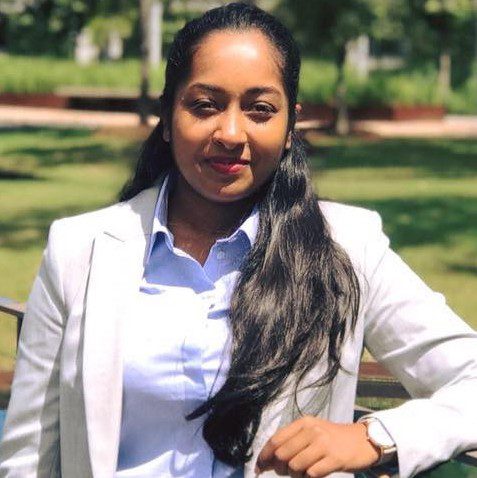Kareshma Narine was one of the first Guyanese to take up a position aboard the Noble Bob Douglas drill ship. Her story was featured in a 2022 episode of ExxonMobil’s Offshore Diaries, offering a glimpse into the early years of Guyana’s emerging oil and gas workforce.
She grew up in a typical Guyanese household, attending her community primary school and spending her free time playing cricket with cousins and friends. Secondary school at St. Joseph’s was “fairly easygoing” until she buckled down for CXC and then the University of Guyana, where she earned a Bachelor’s degree in Engineering – Applied Geology.
Graduation coincided with Guyana’s offshore sector taking shape. “It was kind of perfect timing because the ship had just arrived and so there were vacant positions,” she recalled. “I ended up being one of the first few people because I came to this rig and there were maybe three other Guyanese people.”
Her first field assignment had been in the gold mines, a job she accepted because she loved the outdoors and was reluctant to pursue a traditional office role. But her offshore journey began when she joined Halliburton as a logging geologist, training and working across several countries with multinational teams.
“I trained three times in Houston… they sent us to logging school essentially, so they train you in everything you need to know.” She later worked in Trinidad, spent months in Colombia, and underwent additional training in Louisiana. The experiences broadened her technical skills across both exploration and development operations. “In Suriname and Colombia, it was exploration…it’s more intense. You collect more samples. People pay more attention to whether or not there is oil or gas there.”
On board the Noble Bob Douglas, her job involved constant monitoring of surface parameters and drilling operations. The early days were daunting and lonely, but the atmosphere changed quickly. Reliable internet kept her connected to home, and the crew became her extended family.
Working in a male-dominated industry brought its own pressures. “I’d be lying if I said there weren’t times when I felt as though I needed to work harder than my male colleagues in order to gain respect,” she admitted. But support from her team made a difference.
Her greatest encouragement came from home. “My mom… she’s always been someone who never limited you, never told you there was something you couldn’t do.” That foundation of support helped her pursue a path few Guyanese women had taken at the time.
Kareshma’s journey stands as early proof of the opportunities created for nationals in the offshore sector. Training, international exposure and career development for Guyanese workers were central to the industry’s goals then, and her success remains a reminder of how far the country has come in building a diverse, capable workforce.
Her story continues to resonate as Guyana’s oil and gas sector matures.



